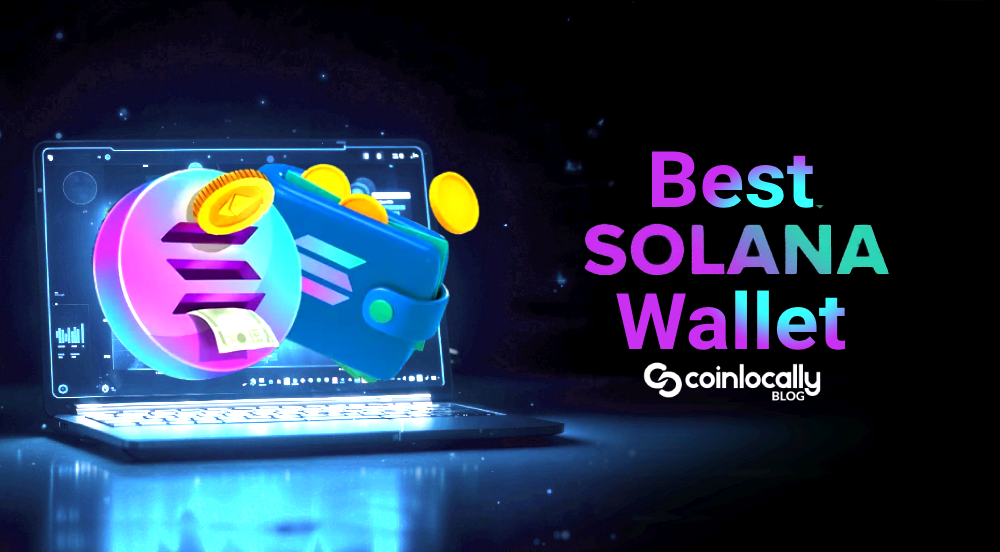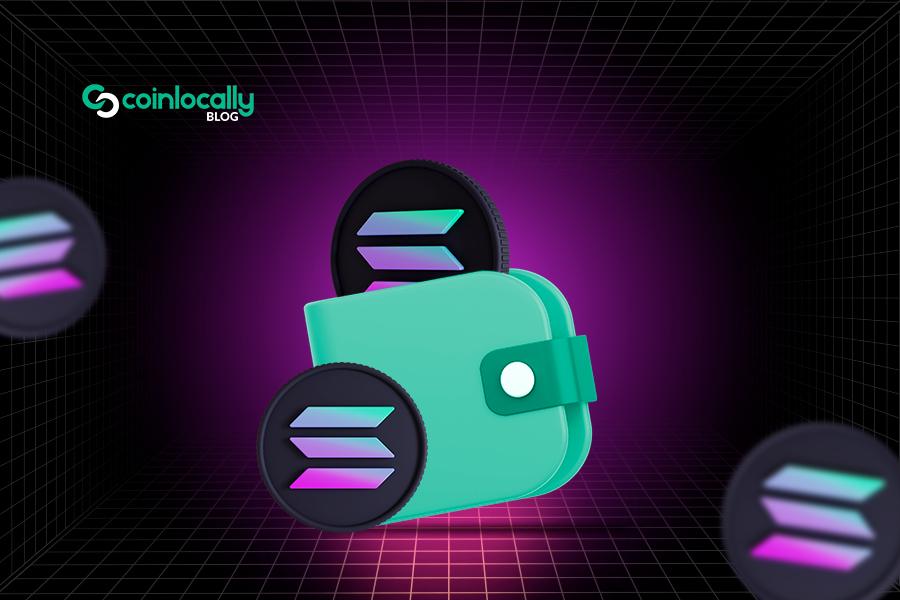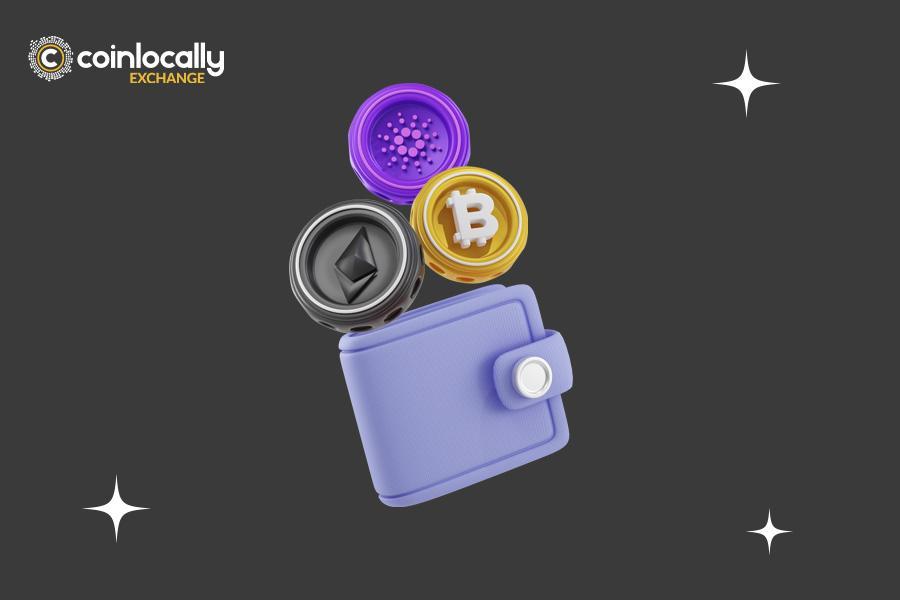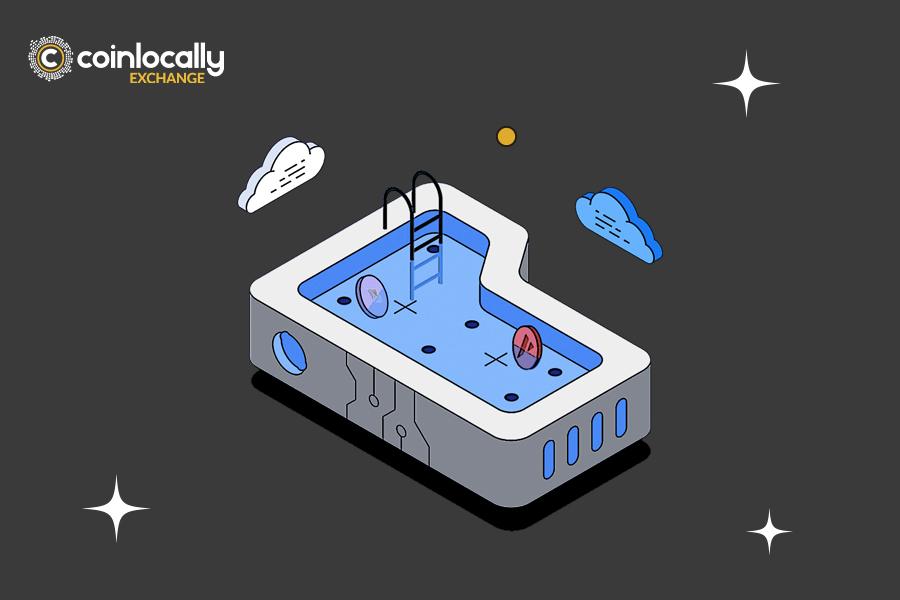Solana has rapidly emerged as a significant force in the crypto space, celebrated for its high throughput, low transaction costs, and scalable blockchain technology. As its popularity grows, the need for secure, user-friendly wallets to manage Solana’s native token, SOL, and other assets built on its blockchain becomes increasingly critical. Your wallet serves as your gateway to the Solana ecosystem, allowing you to store SOL and SPL tokens, interact with decentralized applications (dApps), manage NFTs, stake SOL to earn rewards, and access Web3 features like token swaps and bridging.
Finding the best Solana wallet is often a personal journey, as different users have unique requirements. This guide explores top Solana wallets in 2025, detailing their key features, security aspects, and suitability for various needs, drawing directly from the provided sources.
Table of Contents
Key Factors When Choosing the Best Solana Wallets
Selecting the right wallet involves considering several crucial factors to ensure the security, accessibility, and functionality you need for your digital assets.
Security: Security is paramount among these factors. You need a wallet that protects your private keys from online threats and unauthorized access. Look for features like strong encryption, hardware wallet integration, and clear transaction prompts. Your seed phrase, or recovery phrase, is the master key to your wallet; safeguarding it offline and never sharing it is crucial for maintaining control of your assets.
Ease of Use: An intuitive interface is significant for beginners navigating crypto. A wallet that is easy to set up and manage can significantly improve your experience.
Compatibility and Functionality: Consider how you plan to use your wallet. Do you need to interact with dApps, trade NFTs, or stake your SOL?. Ensure the wallet includes the necessary features and integrates with the platforms you want to use within the Solana ecosystem. Multi-chain support might also factor in if you hold assets on other blockchains.
Customer Support: While non-custodial wallets generally offer limited customer support compared to centralized exchanges, some provide better resources than others. A responsive support team or a comprehensive help center can be valuable when encountering issues.
Best Solana Wallets in 2025
Based on the sources, here are some of the leading Solana wallets, each with distinct strengths:
Phantom Wallet
Phantom is widely recognized as a dominant force in the Solana wallet space. It is praised for its sleek interface, fast performance, and deep ecosystem integration. Phantom serves beginners and experienced users, offering a smooth experience across browser extensions and mobile devices.
Phantom is a non-custodial hot wallet. You maintain control of your private keys, which are stored online. It directly supports staking, token swaps, and NFT management within the platform. Users can easily connect to Solana dApps with one click. Phantom originated as a Solana-focused wallet but has expanded to support other blockchains, including Ethereum and Bitcoin, offering multi-chain capabilities.
Security features include Transaction Previews, designed to act as a firewall against malicious transactions, warning users before approval. Phantom utilizes an open-source blocklist to help users avoid phishing sites. It also undergoes code audits and operates a bug bounty program. Its recovery option is a 12-word secret phrase. You can integrate your Phantom wallet with hardware like Ledger for enhanced security. Phantom is available as a free download on mobile (Google Play and App Store for Android and iOS) and as a browser extension.
Solflare Wallet
Solflare is a feature-rich wallet explicitly built for the Solana ecosystem and one of the first wallets developed for it. It provides users powerful tools for managing their SOL and staking directly from the wallet interface.
Available as a browser extension, web app, and mobile application (Google Play and App Store for Android and iOS), Solflare offers multi-platform accessibility. While primarily dedicated to crypto on the Solana blockchain (SOL and SPL tokens), it does not support Bitcoin or other non-Solana ecosystem crypto. Solflare integrates with popular dApps and services. Staking with Solflare can earn users up to 6.8% APY. It supports integration with hardware wallets like Ledger and Keystone, offering an added layer of security by keeping keys offline. Solflare offers a 12-word secret phrase for recovery and utilizes Hierarchical Deterministic wallet technology for privacy. It provides good fiat funding options. The wallet can have a steep learning curve due to its numerous features.
Trezor
Trezor is a leading provider of crypto hardware wallets known for reliability and security. The Trezor Safe 5 is highlighted as the best Solana wallet for security. As a cold wallet, it stores your private keys offline, protecting them from online threats.
The Trezor Safe 5 costs $169, a one-time charge. It supports over 1,000 cryptocurrencies, including Solana, Bitcoin, and Ethereum. Key security features include generating a new address after every transaction for privacy and requiring manual authentication on the device to authorize transactions. Recovery is possible with a standard 12-word phrase, a 25th word, and Shamir backup. Trezor’s source code is fully open for public review. The wallet allows buying, selling, swapping, and staking crypto (though sources note it doesn’t support SOL staking directly), and supports NFTs and dApp access through third-party software. Software, it lacks a built-in software range and fiat funding capabilities. Customer service is limited to an AI chat and support ticket system.
Ledger Wallets
Ledger hardware wallets are considered the gold standard for users prioritizing security. Models like the Ledger Nano S Plus, Ledger Nano X, and Ledger Stax offer offline storage of private keys, significantly reducing the risk of theft or hacks.
Ledger devices store private keys in a secure element chip and are protected by a PIN code. They support recovery using a secret phrase and an optional 25th word. Ledger supports over 1,000 crypto assets, including Solana. While the Ledger device doesn’t directly connect to dApps, it can be integrated with software wallets like Phantom and Solflare to perform transactions while keeping your keys offline. You can stake SOL through Ledger Live or supported integrations. Ledger models range in price from €79.00 to €279.00.
Exodus
Exodus is a well-known wallet offering a sleek user interface and robust capabilities, making it ideal for mobile-first Solana holders. It is available on mobile (Google Play and App Store for Android and iOS), desktop, and as a browser extension.
Exodus supports over 280 cryptocurrencies, including Bitcoin, Ethereum, and Solana. Users can buy, sell, swap, and stake crypto within the app. It provides dApp access. Security features include client-side encryption and password protection, and recovery is done via a seed phrase. Exodus can be integrated with Trezor Model T hardware wallets for enhanced security. However, Exodus has limitations, such as limited support for NFTs (Solana and Ethereum-based, but not Bitcoin NFTs), a relatively limited selection of supported cryptocurrencies, and limited customer support. It also lacks 2FA and multi-signature support.
Coinbase Wallet
Coinbase Wallet is recommended as the best Solana wallet for beginners and staking. It is free to download and features an easy-to-navigate interface and strong educational resources.
Coinbase Wallet supports over 5,500 cryptocurrencies, including Solana, Bitcoin, and Ethereum. Beginners can easily set up and fund their wallets. It offers excellent staking rewards, with users potentially earning over 5% APY by staking Solana, and up to 14% APY on other supported cryptos. The wallet integrates easily with the major Coinbase exchange. Drawbacks include limited customer service (chat and email, with call requests for urgent matters), and its source code is not fully auditable. However, its Multi-Party Computation (MPC) can be tested. It also does not generate a new address after every transaction.
Trust Wallet
Trust Wallet is a popular multi-chain, self-custody wallet supporting Solana and over 10 million digital assets across 100+ blockchains. It is known for its ease of use and accessibility. Trust Wallet is free to download and use, charging only network fees for transactions.
Available as a mobile app (for Android and iOS) and a browser extension, Trust Wallet offers a simple and intuitive design. Users can browse Solana dApps, including DeFi apps and NFT marketplaces. The wallet enables in-app staking and swapping of the SOL token. Security is a priority, with features like the Trust Wallet Security Scanner, which alerts users to risky transactions in real-time. Backup options include a 12-word secret phrase or encrypted cloud backup. It supports biometric authentication on mobile. Trust Wallet can also connect to hardware wallets for enhanced storage security. While it has robust security measures, it lacks native 2FA and multi-sig support.
Backpack Wallet
Backpack Wallet is a newer entrant that focuses on the Web3 experience. It supports Solana, Ethereum, and other chains and is designed for power users and NFT collectors.
Backpack allows for SOL staking, NFT management (including xNFTs), and seamless dApp integration on desktop and mobile. Its interface is modern and intuitive. A unique feature is NFT collection locking, which automatically rejects transaction signature requests for selected NFT collections to prevent wallet drains. Backpack also offers integration with hardware wallets for enhanced security. It has made its code open source. Backpack is the most compatible wallet for the Backpack exchange, built by the same team.
Atomic Wallet
Atomic Wallet offers broad cryptocurrency support, including Solana, and is known for its high staking rewards. It is available on desktop and mobile.
The wallet supports staking for SOL and over 1,000 other cryptocurrencies. Its user interface is straightforward, with clear navigation. Security measures include storing private keys locally, password encryption, a backup seed phrase, and Hierarchical Deterministic technology. However, it lacks advanced security features like 2FA and multi-sig. A notable disadvantage is the relatively high fees for crypto purchases and swaps within the wallet.
Glow Wallet
Glow Wallet is a dedicated Solana wallet recognized for its simplicity and mobile-first design. It targets Solana enthusiasts and newcomers seeking a straightforward and secure solution.
The wallet offers a clean interface for managing SOL, interacting with dApps, and storing NFTs. It supports biometric login on mobile for convenience. Security provisions include a non-custodial design, local key storage, password protection, and a recovery phrase backup. Its open-source codebase adds transparency. Glow is limited to Solana assets and does not have a desktop version. It does not support 2FA or multi-sig.
MathWallet
MathWallet is an advanced multi-chain wallet that supports over 100 blockchains, including Solana. It is particularly appealing for developers and users who use a wide range of dApps.
MathWallet is available on mobile and desktop and as a browser extension. Its dApp browser supports Solana and other ecosystems. Features include a MathStaking tool for selecting validators and developer tools. It also integrates with Ledger hardware wallets for enhanced security. Potential drawbacks include occasionally slow-loading features and less responsive customer support compared to alternatives.
Tangem Wallet
Tangem Wallet offers a unique approach with its sleek NFC-enabled card format. It provides hardware-level security with ease of use, even for beginners. Unlike traditional hardware wallets, it uses tap-to-transact technology and requires no batteries or cables.
Tangem supports Solana and other coins and is preloaded with features like SOL staking and native token management. Notable security features include an EAL6+ secure element, tamper-proof design, contactless operation, and physical possession verification. It provides a safe, minimalist option for users.
Torus Wallet (via Web3Auth)
Torus Wallet focuses on simplified onboarding and accessibility, leveraging social media logins (like Google, Facebook, and Twitter) for wallet recovery. This makes it ideal for beginners who prefer not to deal with seed phrases.
Torus supports Solana and various other blockchains. Its key management system uses distributed key generation and threshold cryptography to remove a single point of failure for user-controlled key shares. It supports direct integration with dApps. While it enhances usability, it introduces different trust assumptions related to its node network and potential privacy concerns due to social media reliance.
Best Solana Wallets for Specific Needs
Based on the strengths highlighted in the sources:
Best for Security
Hardware wallets like Trezor Safe 5, Ledger (Nano S Plus, Nano X, Stax), and Tangem are consistently ranked highest for security due to their offline storage of private keys and robust security features.
Best for Beginners
Coinbase Wallet is chosen for its easy-to-navigate interface and educational resources. Phantom is also considered beginner-friendly due to its sleek interface and streamlined onboarding. Tangem is recommended for beginners wanting hardware-level security without technical hurdles. Torus simplifies access with social logins.
Best for Staking
Coinbase Wallet offers Solana excellent staking rewards. Phantom, Solflare, Exodus, Atomic Wallet, Tangem, and Ledger (via Ledger Live/integrations) also provide staking functionalities.
Best for Mobile (Android and iOS)
Exodus is highlighted for its impressive mobile functionality and user interface. Phantom, Solflare, Trust Wallet, and Glow Wallet also offer robust mobile applications, making them convenient for managing assets on Android and iOS devices.
Best for Multi-Platform Use
Solflare is the best multi-platform wallet, accessible across various devices and operating systems, including web, browser extensions, and mobile. Exodus, Trust Wallet, and MathWallet also offer access across multiple platforms, such as desktop, mobile, and browser extensions.
Best for dApps
Phantom was chosen to offer the best access to dApps across several major blockchains, including Bitcoin and Ethereum, from within the Solana ecosystem. Exodus, Solflare, Trust Wallet, MathWallet, and Glow Wallet also provide dApp access and integration. When looking for dApps, you might be interested in exploring platforms like Magic Eden or other NFT marketplaces built on Solana.
Best for NFTs
Several wallets built on Solana offer good support for NFTs. Phantom provides seamless NFT viewing and trading. Backpack Wallet is explicitly optimized for managing xNFTs and digital collectibles. Solflare and Exodus also support NFTs.
Best for Multi-Chain Support
Wallets like Trust Wallet, Exodus, Backpack, Atomic Wallet, and MathWallet support numerous blockchains beyond Solana, allowing you to manage diverse crypto holdings in one place. Phantom is also increasing its multi-chain support.
Hot Wallets vs. Cold Wallets
Choosing between a hot and cold wallet involves balancing convenience and security.
Hot wallets are software applications or browser extensions connected to the internet. They offer convenience for frequent transactions and interacting with dApps. Examples include Phantom, Solflare, Exodus, Coinbase Wallet, Trust Wallet, Atomic Wallet, Glow Wallet, MathWallet, and Torus. They are generally free to download. However, online users are more susceptible to digital hacks, phishing attacks, and malware.
Cold wallets, or hardware wallets, are physical devices that store your private keys offline, completely isolated from the internet. They are considered the most secure option for storing massive digital assets, as they protect against online threats. Examples include Trezor, Ledger, and Tangem. Hardware wallets require purchasing the device. While highly secure, they can be less convenient for frequent transactions than hot wallets.
A standard recommendation for enhanced security is to combine the use of hot and cold wallets. You can store most of your assets offline in a hardware wallet while keeping a smaller amount in a hot wallet for daily transactions and dApp interaction. Many hot wallets support integration with hardware wallets to facilitate this.
Security and Best Practices
Maintaining the security of your digital assets is paramount, regardless of the wallet you choose. Many instances of lost funds are not due to inherent wallet vulnerabilities but rather to users falling victim to scams or failing to follow basic security practices.
Safeguard Your Seed Phrase: Your seed phrase (or recovery phrase) is the most critical piece of information. It provides complete access to your wallet and its funds. Never share it with anyone; do not enter it on any websites. Store it securely offline, perhaps by writing it down and keeping it in a safe physical location.
Be Wary of Phishing and Malicious Links: Scammers often use phishing tactics, inviting users to connect their wallets to malicious sites or click dodgy links. Always double-check URLs and the legitimacy of any service before connecting your purse. Be cautious about unsolicited messages or offers, especially on platforms like Reddit or Telegram; moderators explicitly warn against trusting direct messages from those offering help with funds.
Review and Authenticate Transactions Carefully: Before approving any transaction, carefully review the details to ensure it is what you intend. Hardware wallets like Trezor require manual authentication on the device, while software wallets like Phantom offer Transaction Previews to help identify potentially malicious actions.
Enable Available Security Features: If the wallet offers them, utilize features like password protection, PIN codes, biometric authentication (Face ID, Touch ID), and Multi-Factor Authentication (MFA).
Keep Software updates up-to-date to benefit from the latest security patches.
Setting Up the Best Solana Wallets
Getting started with a Solana wallet is generally straightforward. While the specific steps may vary slightly by wallet, the core process is similar:
Choose a Wallet
Select a wallet that aligns with your needs and preferences.
Download and Install
You can download the official wallet application (mobile app, browser extension, or desktop application) from the official source.
Create a New Wallet
Follow the prompts to create a new wallet.
Secure Your Secret Recovery Phrase
This is a critical step. The wallet will present a seed phrase (usually 12 or 24 words). Write it down and store it in a secure physical location, away from your devices and offline. You might be asked to verify the phrase. Do not share this phrase with anyone.
Set Up a Password/PIN
Create a strong password or PIN for everyday access to the wallet.
Fund Your Wallet
Transfer SOL or other tokens to your new wallet address. You can typically find your wallet address within the app and fund it by transferring from an exchange or another wallet, or sometimes by purchasing crypto directly through third-party providers integrated into the wallet.
Explore and Use
You can now interact with the Solana ecosystem, connect to dApps, stake SOL, manage NFTs, and send/receive tokens.
If using a hardware wallet, the setup will involve configuring the physical device and potentially pairing it with a software application like Ledger Live or integrating it with a hot wallet.

Phantom Wallet Security Concerns on Reddit
A Reddit user inquired about Phantom Wallet’s safety, citing recent negative reviews on the Chrome Web Store claiming drained wallets. The discussion revealed that while some users have unfortunately experienced losses, the consensus among many users and moderators is that Phantom Wallet is safe and secure. Incidents of drained wallets are overwhelmingly due to user error or external scams rather than a vulnerability in the wallet software.
Users reported losses after interacting with phishing scams, downloading fake extensions, connecting their wallet to suspicious or malicious websites or apps, or unknowingly exposing their seed phrase. The official Solana subreddit moderators warn against trusting direct messages related to funds and emphasize never sharing your seed phrase or entering it on websites.
Several users shared positive experiences, having used Phantom for years without issues. While the user-friendly interface is a benefit, it can also lead inexperienced users to inadvertently approve malicious transactions or interact with scam elements. Recommendations to stay safe include always downloading the wallet from official sources, never sharing your seed phrase, double-checking transactions, and being highly cautious about connecting your wallet to third-party sites or services. The Reddit discussion underscores the importance of user vigilance and understanding basic crypto security practices.
Smart Wallets on Solana
A newer development in the Solana ecosystem is the emergence of embedded smart wallets, also known as Account Abstraction (AA) wallets. Unlike traditional wallets tied to a single keypair, smart wallets are executable program accounts with custom logic and features.
Smart wallets aim to eliminate the need for seed phrases and their associated risks. They allow for flexible key management, supporting multiple signers (like biometric data, social logins, or multi-signature setups) rather than relying solely on a single private key. This programmability enables features like gas sponsorship, where developers can cover transaction fees for users using SOL or other tokens like USDC, creating a more “feeless” and Web2-like user experience by abstracting away transaction fees.
Smart wallets can implement programmable security constraints, such as spending limits, approval workflows, and time locks. They offer programmatic recovery options and can be set up with flexible custody models (self-custodial, developer custodial, or hybrid). Typical use cases include company treasury wallets, AI agent wallets, and financial apps requiring flexible custody. This technology represents an evolution towards more user-friendly, secure, and programmable on-chain experiences on Solana.
Top Solana Wallet Addresses / Copy Trading
The provided sources do not contain information about specific “top Solana wallet addresses” or offer recommendations for wallets suitable for “copy trading.” Therefore, I cannot fulfill these parts of your query based on the given material.
Withdrawing SOL to Fiat Currency
Suppose you wish to convert your SOL tokens in a Solana wallet into traditional currency (USD or EUR) and withdraw them to a bank account. In that case, you typically need to use a centralized cryptocurrency exchange.
Here’s the general process:
- Choose a Centralized Exchange: Select a reputable exchange that supports Solana trading (e.g., Binance or Coinbase).
- Send SOL to the Exchange Wallet: From your Solana wallet (e.g., Phantom, Solflare, Trust Wallet), transfer your SOL tokens to your deposit address on the chosen centralized exchange.
- Sell SOL for Fiat: Place a sell order for your SOL tokens against the desired fiat currency (e.g., SELL SOL/USD on the exchange).
- Withdraw Fiat: Once your SOL is sold for fiat, you can initiate a withdrawal from the exchange to your linked bank account using their available methods (e.g., bank transfer, debit card).
Some wallets may integrate third-party services that offer “fiat off-ramp” capabilities, but centralized platforms generally handle this process.
Conclusion on Best Solana Wallets
Choosing the best Solana wallet involves carefully assessing your needs, whether they prioritize top-tier security, ease of use for beginners, specific functionalities like staking or NFT management, multi-chain support, or accessibility across different platforms.
Hardware wallets like Trezor, Ledger, and Tangem offer unmatched security for storing significant amounts of SOL offline. Popular software wallets like Phantom, Solflare, Exodus, and Trust Wallet provide excellent usability and features for daily transactions and interacting with the Solana ecosystem’s dApps and NFTs. Wallets like Coinbase Wallet and Torus cater well to beginners. Trust Wallet, Exodus, Backpack, Atomic Wallet, and MathWallet are strong contenders for users managing assets across multiple blockchains. Meanwhile, Backpack and Phantom stand out for NFT management.
Ultimately, combining a hardware wallet for long-term storage with a reputable software wallet for active use is often recommended as a best practice for optimal security. Regardless of your choice, the most critical factor in keeping your Solana assets safe is your vigilance: safeguarding your seed phrase, using strong passwords, enabling available security features, and being extremely cautious about phishing attempts and suspicious interactions. You can confidently navigate the dynamic Solana ecosystem by understanding your chosen wallet’s features and security protocols and adhering to fundamental security practices.




